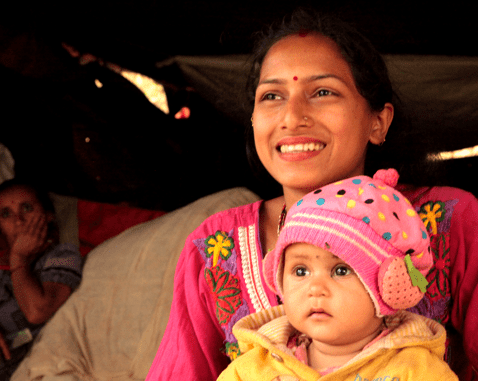Nepal is highly susceptible to natural hazards such as earthquakes and floods. Vulnerabilities are compounded by poverty; around a quarter of the population lives in extreme poverty, many in remote and hard-to-reach areas. Availability and quality of public services, including healthcare, is limited. UNFPA co-leads humanitarian preparedness and response in the areas of sexual and reproductive health and gender-based violence prevention and response, together with relevant Government ministries. UNFPA’s preparedness work focuses on enhancing coordination, strengthening capacities of service providers and other stakeholders, developing and updating disaster preparedness plans and guidelines, and prepositioning life-saving relief materials, including reproductive health and dignity kits. In response to disasters, UNFPA distributes these kits and provides SRH and GBV services and information to affected populations, particularly women and young people.
- Home
- Data
- Humanitarian Emergencies
- Nepal Humanitarian Emergency
Data Menu
-
Country Pages
-
Asia & the Pacific
- Afghanistan
- Bangladesh
- Bhutan
- Cambodia
- China
- India
- Indonesia
- Iran, Islamic Republic of
- Lao People's Democratic Republic
- Malaysia
- Maldives
- Mongolia
- Myanmar
- Nepal
- Pakistan
- Papua New Guinea
- Philippines
- Sri Lanka
- Thailand
- Timor-Leste
- Viet Nam
-
Eastern Europe & Central Asia
- Albania
- Armenia
- Azerbaijan
- Belarus
- Bosnia and Herzegovina
- Georgia
- Kazakhstan
- Kosovo Office
- Kyrgyzstan
- Moldova, Republic of
- North Macedonia
- Serbia
- Tajikistan
- Türkiye
- Turkmenistan
- Ukraine
- Uzbekistan
-
Arab States
- Algeria
- Djibouti
- Egypt
- Iraq
- Jordan
- Lebanon
- Libya
- Morocco
- Oman
- Palestine
- Somalia
- Sudan
- Syrian Arab Republic
- Tunisia
- Yemen
-
East & Southern Africa
- Angola
- Botswana
- Burundi
- Comoros
- Congo, the Democratic Republic of the
- Eritrea
- Eswatini
- Ethiopia
- Kenya
- Lesotho
- Madagascar
- Malawi
- Mauritius
- Mozambique
- Namibia
- Rwanda
- Seychelles
- South Africa
- South Sudan
- Tanzania, United Republic of
- Uganda
- Zambia
- Zimbabwe
-
Latin America & the Caribbean
- Argentina
- Bolivia, Plurinational State of
- Brazil
- Chile
- Colombia
- Costa Rica
- Cuba
- Dominican Republic
- Ecuador
- El Salvador
- Guatemala
- Haiti
- Honduras
- Mexico
- Nicaragua
- Panama
- Paraguay
- Peru
- Uruguay
- Venezuela, Bolivarian Republic of
- Caribbean (multi-country)
-
West & Central Africa
- Benin
- Burkina Faso
- Cabo Verde
- Cameroon
- Central African Republic
- Chad
- Congo
- Côte d'Ivoire
- Equatorial Guinea
- Gabon
- Gambia
- Ghana
- Guinea
- Guinea-Bissau
- Liberia
- Mali
- Mauritania
- Niger
- Nigeria
- Sao Tome and Principe
- Senegal
- Sierra Leone
- Togo
-
Country Menu
Humanitarian needs
Last updated on - April 2021
Total people in need
6.2 million
Humanitarian funding
Resources in US$
Key humanitarian results 2021

Women assisted to deliver babies safely in UNFPA-supported facilities

Affected population reached with Family Planning services

Number of women of reproductive age (aged 15-49) reached with SRH services

People reached with awareness-raising activities and GBV-lifesaving information in-person

Personnel trained on clinical management of rape

Personnel trained on the Minimum Initial Service Package (MISP) for SRH
Disclaimer
- Results data are reported and updated as they become available.
- -Targets and UNFPA's populations of concern, including women of reproductive age and pregnant women, are estimated using the MISP calculator.
- -Funding estimates are based on country planning processes, including inter-agency humanitarian response plans and regional refugee and resilience plans.
Related content





